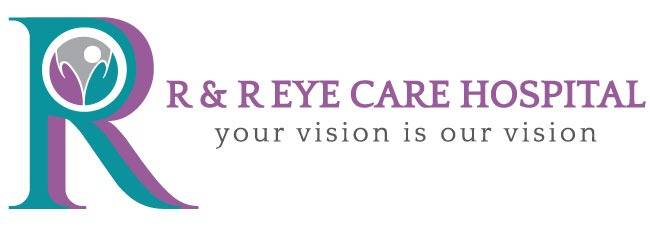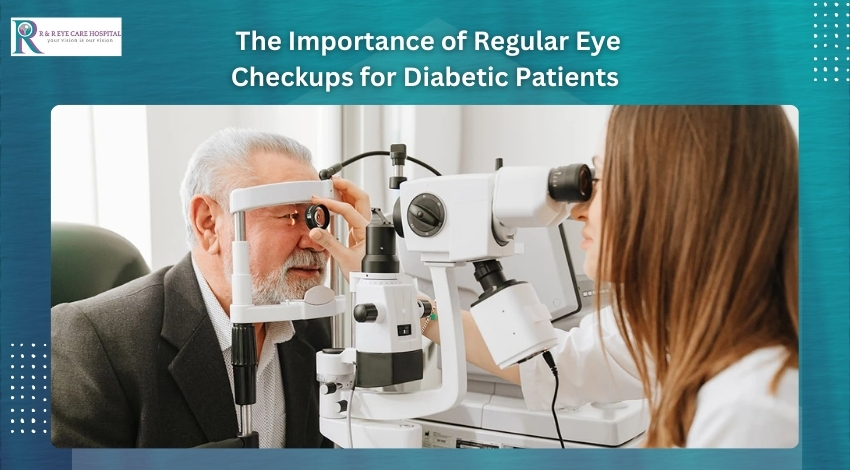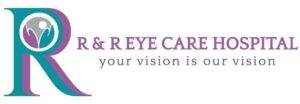Diabetes is a chronic condition that can affect various aspects of health, including vision. One of the most serious complications related to diabetes is diabetic eye disease, which encompasses a range of conditions that can lead to vision impairment or even blindness if left untreated. At R & R Eye Care Hospital, we emphasize the importance of regular eye checkups for diabetic patients to safeguard their vision and overall health.
Understanding Diabetic Eye Disease
Diabetic eye diseases primarily include diabetic retinopathy, diabetic macular edema, cataracts, and glaucoma. Each of these conditions can develop due to prolonged high blood sugar levels, which can damage blood vessels in the retina or lead to other eye complications.
- Diabetic Retinopathy:
This is the most common diabetic eye disease and occurs when diabetes damages the tiny blood vessels in the retina. Early stages may not present symptoms, making regular eye exams crucial for early detection.
- Diabetic Macular Edema:
This condition arises from fluid leaking into the macula, causing swelling and blurred vision. It often occurs alongside diabetic retinopathy.
- Cataracts:
People with diabetes are at a greater risk of developing cataracts, which can cloud the lens of the eye and impair vision.
- Glaucoma:
This group of eye conditions can damage the optic nerve, often associated with increased pressure in the eye. Diabetic patients have a higher risk of developing glaucoma.
Why Regular Checkups Matter
- Early Detection: Many diabetic eye diseases progress silently without noticeable symptoms until significant damage has occurred. Regular comprehensive eye exams can catch changes in the eyes early, allowing for prompt treatment that can prevent vision loss.
- Monitoring Changes: Diabetes can lead to fluctuations in vision as well as changes in eye health over time. Regular checkups allow eye care professionals to monitor these changes, adjusting treatment plans and possibly medications to manage both diabetes and eye health more effectively.
- Preventive Care: During eye exams, optometrists and ophthalmologists can offer advice on managing blood sugar levels, nutrition, and lifestyle factors that contribute to eye health. Preventive measures are key in minimizing the risk of severe complications associated with diabetes.
Timely Treatment Options: If any eye complications are detected, prompt treatment can make a significant difference. Options like laser treatments, injections, or surgery can be effective in treating conditions like diabetic retinopathy or macular edema, preserving vision and quality of life.
Recommendations for Diabetic Patients
Schedule Regular Eye Exams: Diabetic patients should have comprehensive eye exams at least once a year, or more frequently if recommended by their eye care professional.
Maintain Blood Sugar Levels: Keeping blood sugar levels within target ranges can significantly reduce the risk of developing eye-related complications.
Adopt a Healthy Lifestyle: Regular exercise, a balanced diet, and avoiding smoking are essential measures for managing diabetes and protecting eye health.
Stay Informed: Knowledge is power. Understand the risks associated with diabetes and watch for any changes in vision, reporting them immediately to an eye care provider.
Conclusion
For individuals living with diabetes, regular eye checkups are a vital component of health care. At R & R Eye Care Hospital, we are dedicated to providing comprehensive eye care and monitoring for diabetic patients to ensure their vision remains clear and healthy. Don’t wait for symptoms to arise; take proactive steps to protect your vision by scheduling an eye exam today. Our team of specialists is here to help you manage your eye health effectively, empowering you to maintain your quality of life.




Leave A Comment